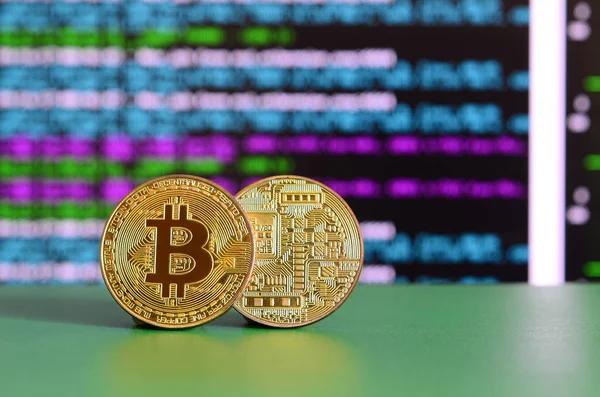※This article is automatically translated. For accurate content, please refer to the original text.
The Mt. Gox collapse presented regulators worldwide with the reality that digital assets could no longer be ignored. The Financial Services Agency (FSA) of Japan was one of the institutions that most strongly received this message.
In this episode, Chengyi Ong, APAC Policy Director at Chainalysis, interviews Ryosuke Ushida, International Planning Coordination Officer and International Anti-Money Laundering Coordination Officer at the FSA. They delve into the FSA's pioneering efforts in crypto asset regulation and explore the background of Japan's success in balancing innovation and risk reduction from multiple perspectives.
The episode is currently available on Spotify, Apple, and Audible. The full interview can be found in the transcript below.
Public Key Episode 167: Japan's Innovative Steps in Crypto Asset Regulation
Following the Mt. Gox collapse, regulators worldwide began to recognize digital assets as an unavoidable presence. Among them, Japan's Financial Services Agency most strongly recognized its importance and has been actively responding.
In the conversation between Chengyi from Chainalysis and Ryosuke Ushida from the FSA, they exchanged views from multiple perspectives on the pioneering role the FSA has played in crypto asset regulation and how Japan has balanced innovation and risk reduction.
In this interview, Mr. Ushida also mentioned Japan's unique comprehensive digital asset strategy, including inter-agency collaboration, which is crucial for achieving regulatory and innovation goals. Topics such as stablecoin regulation, international policy harmonization for crypto assets, and addressing cybersecurity challenges were also discussed, introducing Japan's multifaceted approach in fintech and digital asset domains.
Memorable Quote
"Japan's crypto asset history began in 2014. At that time, there was a Bitcoin exchange called Mt. Gox in Tokyo, where over 70% of global Bitcoin trading occurred. However, the Financial Services Agency (JFSA) was completely unaware of this fact. Suddenly, approximately $500 million worth of Bitcoin was lost. This incident led to the creation of a new regulatory framework for crypto asset service providers in 2016."
Ryosuke Ushida, International Planning Coordination Officer, Financial Services Agency
Our podcasts are for informational purposes only, and are not intended to provide legal, tax, financial, or investment advice. Listeners should consult their own advisors before making these types of decisions. Chainalysis has no responsibility or liability for any decision made or any other acts or omissions in connection with your use of this material.
Chainalysis does not guarantee or warrant the accuracy, completeness, timeliness, suitability or validity of the information in any particular podcast and will not be responsible for any claim attributable to errors, omissions, or other inaccuracies of any part of such material.
Unless stated otherwise, reference to any specific product or entity does not constitute an endorsement or recommendation by Chainalysis. The views expressed by guests are their own and their appearance on the program does not imply an endorsement of them or any entity they represent. Views and opinions expressed by Chainalysis employees are those of the employees and do not necessarily reflect the views of the company.
Full Interview
Ryosuke Ushida (International Planning Coordination Officer / International Anti-Money Laundering Coordination Officer at the Financial Services Agency's General Policy Bureau General Affairs Division, Co-Chair of the Virtual Asset Contact Group, hereinafter "Ushida")
Today, I would like to learn more about Japan's cryptocurrency regulations. Japan seems to have many advanced regulatory cases globally, could you tell me about its journey and particularly impressive events?
Indeed, Japan recognized Bitcoin and other cryptocurrencies early on and the market expanded. However, the Mt. Gox incident in 2014 occurred, which significantly impacted the market as about 70% of Bitcoin transactions were conducted on Mt. Gox at the time. This prompted the Financial Services Agency to quickly establish a regulatory framework, including introducing a licensing system for cryptocurrency service providers.
A major incident became a turning point for regulatory strengthening. Has regulation continued to evolve since then?
Yes. A new framework was legalized in 2016, but after the Coincheck incident, we continued ongoing reviews in 2019, including cold wallet storage obligations, enhanced investor protection, and rules for security tokens. In 2022, we also introduced stablecoin regulations. Now we can be considered a country with a comprehensive regulatory system covering cryptocurrencies, stablecoins, and tokenized securities.
Could you explain the background for why such regulatory strengthening was necessary?
At the core are AML, or anti-money laundering measures, and the need for consumer protection. Additionally, by pioneering system design, Japan can become a model for other countries and contribute more easily to international standard setting. However, we are always aware of the risk that frameworks created now might quickly become outdated due to extremely rapid technological and business model changes.
What ingenuity do you employ to respond to environmental changes?
The cryptocurrency environment is very fluid, with new tokens and services emerging almost yearly. Therefore, we conduct legal amendments and guideline reviews annually. Uniquely in Japan, we also emphasize industry self-regulation by self-regulatory organizations, covering areas not strictly defined by law, such as rules for small transactions.
I'm also interested in public-private collaboration. What initiatives exist in Japan?
Companies and industry groups work closely with the government to balance regulation and innovation. Especially for Web3 and digital assets, we are enhancing cross-ministerial discussions spanning finance, taxation, technology, and intellectual property. Collaboration with various ministries and industry experts is a characteristic of Japan's policy-making process.
What do you currently feel is the most challenging issue?
Responding to financial crimes is an urgent challenge. Recently, there has been an increase in cryptocurrency misuse through North Korean hacking, fraud, and ransomware. Incidents like those at DMM Bitcoin and Bybit show that cold wallet storage alone is insufficient for asset safety, and we believe a review of operations and governance itself is essential.
Stablecoin regulation and harmonization with international standards are also topics of discussion. Could you share Japan's approach and future ideals?
Japan created a regulatory framework relatively early, and similar movements are spreading worldwide. The ultimate goal is internationally harmonized standards, but risks and policy objectives differ between countries. Therefore, we are progressing through international organizations like FATF and IOSCO to build common minimum standards and coordinate between countries.
Beyond regulation, I believe self-standards by the industry and community are also important. What movements exist in this area?
Initiatives like the "Blockchain Governance Initiative (BGIN)" are representative. Diverse stakeholders including regulatory authorities, industry, and developers collaborate on governance and standardization. Such autonomous standard-setting provides flexible responses to technological evolution that cannot be addressed by regulation alone.
Could you introduce international events held in Japan?
We hold international networking events like "Japan Fintech Week" through public-private-academic collaboration. Focusing on fintech and digital assets, domestic and international practitioners and regulators discuss specific cases and challenges. Next year's themes include "specific use cases" and "harmony", planning to cover the relationship between regulation and cutting-edge technologies like AI and blockchain, and stablecoin applications.
Lastly, what points are you focusing on from the perspective of financial crime prevention and crime deterrence?
Crimes using cryptocurrencies such as investment fraud, romance scams, and ransomware are increasing. We believe it's crucial to prevent crime recurrence by tracking criminal proceeds on-chain and blocking their transfer routes.
What keywords will be key in future regulations?
The point is "harmonization". We also have high expectations for creating diverse use cases. To realize a healthy ecosystem that balances financial innovation and risk management, we need to continue working together between the public and private sectors.
This has been very helpful. Thank you very much today.
Thank you.
The post Japan's Advanced Efforts in Cryptocurrency Regulation: Podcast Episode 167 first appeared on Chainalysis.





